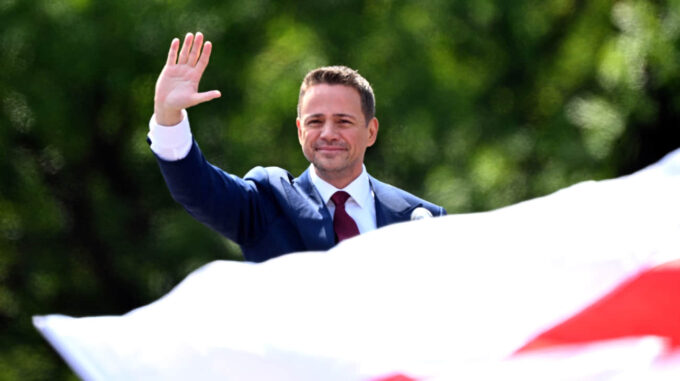The Verkhovna Rada of Ukraine has expressed concern regarding the possible complication and the likelihood of Karol Nawrocki being elected President of Poland, as well as his potential influence on integration processes within the European Union

Tags: politics, European integration, Poland, Ukraine, European Union. According to official data, after the vote count was completed in the second round of the Polish presidential elections, Karol Nawrocki received 50.89% of the votes. His opponent, Rafael Trzaskowski, garnered 49.11%. This serves as a warning sign for Ukrainian diplomacy, as a political leader capable of shaping a more pro-Russian or isolationist policy could pose additional challenges for Ukraine in its pursuit of full integration into European structures. In this regard, Ivanna Klympush-Tsintsadze, a member of the "European Solidarity" faction and head of the Ukrainian Parliament's Committee on European Integration, voiced her position from the Verkhovna Rada. In an exclusive comment for Interfax-Ukraine and European Pravda, she warned that the choice of the Polish people could complicate not only internal dialogue within the European Union but also Ukraine's further integration process. According to the parliamentarian, the likelihood is increasing that Poland— which until recently was an active advocate for Ukraine, supporting its movement towards the EU community— could change its stance and become more isolationist, showing unfriendly attitudes towards supporting Ukraine. "There is nothing perfect about the Polish choice, and the worst thing is that this choice could deepen internal polarization within Polish society, which is increasingly leaning towards isolationist ideas. This is very concerning, given that such policies contradict solidarity and openly complicate our European integration path," Klympush-Tsintsadze emphasized. She also noted that Ukrainian politicians and diplomacy must be prepared to actively communicate to Polish leadership and the public the importance of supporting the shared European course and being capable of enduring and overcoming future difficulties. The deputy highlighted that the modern world is experiencing an era of growing political isolationism, and Ukraine must be especially cautious in this context. "Elections in Poland are just one manifestation of a global trend towards increased isolationism, which is concerning not only for our country but for the entire European Union. It is a consequence of the so-called 'deficit of maturity' virus that has spread in global politics. Unfortunately, there is currently no vaccine for this dangerous disease," she said. What preceded this statement? According to official data, in line with predictions, Polish presidential candidate Karol Nawrocki secured an absolute majority of votes in the second round—over 50%—effectively concluding the electoral process. His opponent, incumbent President Rafel Trzaskowski, received 49.11%, indicating a weak but notable anti-rating of his political opponent. It is worth noting that the results of these elections have far-reaching implications not only for the internal political situation in Poland but also for regional and global integration processes. Analysts are already pointing to a possible shift in Poland’s political course from active support for Ukraine’s interests to a more cautious and distant stance, which creates additional risks for Ukraine’s Euro-integration and security trajectories. In the context of this situation, Ukrainian politicians are calling for maintaining firmness and defending shared values. They hope that the Polish political community and public will be able to reorient their long-term priorities towards cooperation and supporting equal relations with Ukraine. Despite the challenges, Ukraine continues to strive toward European integration, regardless of the obstacles and difficulties that arise along the way.

